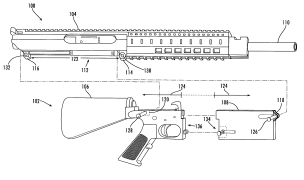 27 Terms
27 TermsHome > Industry/Domain > Archaeology > Evolution
Evolution
Of or pertaining to the change in the genetic composition of a population during successive generations, as a result of natural selection acting on the genetic variation among individuals, and resulting in the development of new species.
Industry: Archaeology
Add a new termContributors in Evolution
Evolution
Homo sapiens
Archaeology; Evolution
Modern humans, which evolved to their present form about 100,000 years ago.
fossil
Archaeology; Evolution
Most commonly, an organism, a physical part of an organism, or an imprint of an organism that has been preserved from ancient times in rock, amber, or by some other means. New techniques have also ...
plankton
Archaeology; Evolution
Minute or microscopic animals (zooplankton) and plants (phytoplankton) that float and drift in water, usually near the surface. In the top meter or two of water, both in the sea and in freshwater, ...
neutralism
Archaeology; Evolution
The theory that much evolution at the molecular level occurs by genetic drift.
diatom
Archaeology; Evolution
These single-celled algae are common among the marine phytoplankton. Their glassy, two-part shells have intricate patterns and fit together like the two parts of a shirt box.
coral
Archaeology; Evolution
These tiny animals make calcium carbonate skeletons that are well known as a key part of tropical reefs. The skeletons of the extinct rugose and tabulate corals are known from fossils.
bacteria
Archaeology; Evolution
Tiny, single-celled, prokaryotic organisms that can survive in a wide variety of environments. Some cause serious infectious diseases in humans, other animals, and plants.


